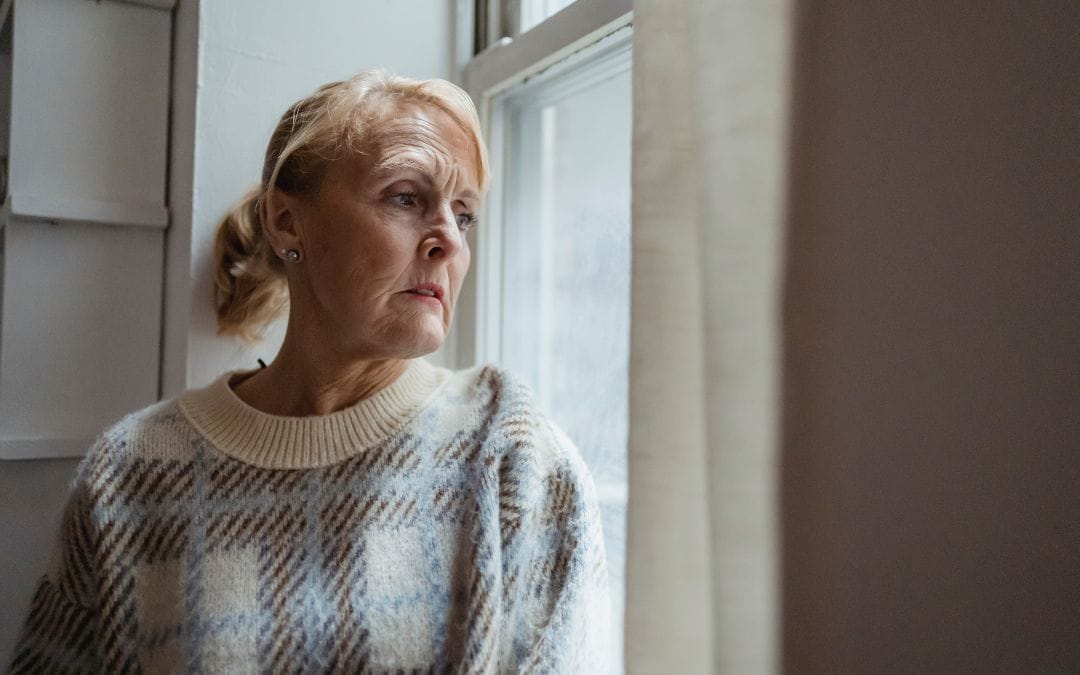No matter your age, it’s essential to prioritize taking care of your mental health. When we feel anxious or depressed, it’s natural to want to go into isolation. We start to feel lonely and quickly forget just how common these experiences are—and how many resources there are to help us.
If you or a loved one have experienced anxiety, you already know just how overwhelming it can be. In some cases, the symptoms of anxiety can look like:
- Excessive or irrational fear or worry
- Repetitively checking for safety
- Avoiding social situations and routine activities
- Trembling
- Sweating
- Nausea
- Shallow breathing
- Rapid heart rate
Over time, these day-to-day experiences can interfere with your sleep, appetite, and overall quality of life. You shouldn’t feel embarrassed if this sounds familiar—we should always be open to talking about anxiety in seniors. These conversations help create solutions for people just like you!
If you want to start trying to manage your anxiety, we’ve outlined six techniques to incorporate into your daily routine. Remember, there is no substitute for professional medical help, and you should seek expert advice when possible.
1. Practice Meditation and Relaxation Techniques
Many experts have emphasized the power of meditation and relaxation techniques for stress reduction. Some examples of these techniques include:
- Yoga: this practice can be beneficial for reducing anxiety in seniors. In addition to helping your mental health, a yoga practice can also improve your overall physical health. If you don’t have a yoga class in your community, consider watching online videos to guide your exercise.
- Muscle relaxation: this is a technique where you focus all of your energy on one group of muscles. Tighten and squeeze them as hard as you can. Then, consciously relax them. We recommend starting from your toes and working your way up the body. This practice will encourage total-body relaxation and help calm your mind.
- Deep breathing: take a slow, deep breath for eight counts, hold it for four counts, then exhale for an additional eight counts. Repeat this practice when you feel your anxiety increasing. By regulating our breathing and body, we can relax our minds.
2. Prioritize Exercise
Getting exercise and being physically active are effective ways for seniors to relieve their anxiety. When you move your body, your brain releases endorphins, often called “feel-good” chemicals. These endorphins can help calm our frustrations or clear our minds of unwelcome stressors.
Many local organizations offer exercise classes for seniors, but you don’t have to go to a gym to get moving. An excellent way to start adding some extra movement to your routine is to take a walk. You can walk with a friend or while listening to an audiobook, podcast, or some of your favorite music.
3. Limit Caffeine
Caffeine is a known offender for increasing anxiety in seniors—and everyone else, for that matter. If you’re prone to feelings of physical jitteriness, limiting or eliminating caffeine can help calm those emotions.
If you need a drink substitution, herbal tea is an excellent alternative to caffeine. You can always make your teas more exciting by adding fun fruits like strawberries, lemon, watermelon, or lime! Adding different fruits will also help support your physical health by providing extra vitamins and minerals.
4. Listen to Music
Whether you’re on a walk or practicing deep breathing at home, listening to music is a proven way to reduce anxiety in seniors. Music therapists regularly use music techniques to help clients improve their mental and emotional health.
If you enjoy singing, keep doing it! If you’re someone who goes to church, you inquire about joining your church choir. If you’re not religious, perhaps there is a local community choir you could join. Listening to music and participating in singing groups can also help relieve social isolation and connect you to a robust support system.
5. Get Social!
Whether from friends, family, local clubs, or support groups, social support is proven to reduce stress. There are plenty of activities in your senior living community and city. As you start participating in new social groups, you might even find others who feel the same way you do! Mental health journeys are more manageable when we have trusted friends that can listen to our experiences.
6. Seek Professional Help
All of the above tips are great suggestions for helping to reduce anxiety in seniors, but sometimes professional help is what you need to improve your quality of life. Mental health professionals can help you identify sources of your stress and how you can cope with anxiety or eliminate it.
Do not be afraid of seeking professional help! Mental health professionals exist for a reason and are happy to help people find happiness and peace. For more information about developing supportive senior living communities and positive mental health for seniors, contact the team at Vineyard Senior Living.

